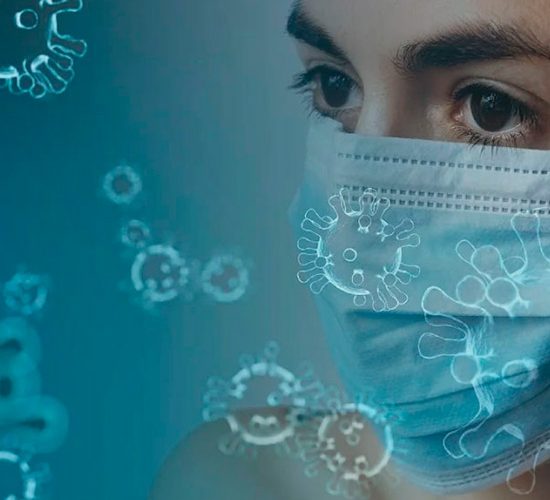What Should Patients with Chronic Diseases Do before COVID-19?

COVID-19-causing coronavirus is currently a public health emergency that has evolved rapidly in many parts of the world, being defined by the World Health Organization (WHO) such as a pandemic that affects patients with chronic diseases and the elderly with greater consequences.
According to an exploratory analysis conducted in China, by the Chinese Center for Disease Control and Prevention, showed that 32% of COVID-19-positive patients had a chronic disease, being the most common Diabetes 20%, at the same time, also revealed that the fatality rate in people with cardiovascular disease is 10,5%; diabetes 7,3% and 6%,3% in chronic respiratory disease. While healthy patients had a low fatality rate of 0.9%.
In this sense, ACCDIS Advanced Chronic Disease Center, brought together scientists from the University of Chile and the Pontifical Catholic University of Chile, to report on the extra-serious measures that people with cardiovascular disease should have, diabetes and cancer.
"Patients suffering from a chronic illness, mainly diabetes, hypertension and certain respiratory diseases are just as likely to spread from the virus as a healthy person, the big difference is the gravity with which it will impact on them," Dr.. Valentina Parra Assistant Professor Faculty of Chemical and Pharmaceutical Sciences, ACCDiS researcher.
Who also made a preventive call, not only COVID-19 but any type of infection, considering that these patients with chronic conditions have a weakened immune system and are prone to receiving another type of virus. "Currently the Ministry of Health is scheduling house-to-house vaccination days against influenza, for those patients with critical chronic diseases, pregnant women and children", dr.. Valentina, who also emphasized that this group of people should be attentive to the official information of each commune.
On the other hand, reported that the hygiene prevention measures were the same as those announced by the World Health Organization, However, this group of people must more accurately comply with the general recommendations: social isolation and in case you are infected by the virus have a separate room and keep a distance of up to two meters with other people, deep hand hygiene, avoid touching your eyes, nose and mouth, continued treatments for each disease and getting vaccinated against influenza.
Patients with heart conditions
A study published in March in the journal Springer Nature, 150 coronavirus patients in Wuhan revealed that cases with cardiovascular disease have an increased risk of mortality. However, the American College of Cardiology says they are not yet clear about the specific effects of COVID-19 on the cardiovascular system.
On the other hand, Dr. Jorge E. Jalil, cardiologist specializing in Internal Medicine of the Pontifical Catholic University and principal investigator at CENDHY (Center of New Drugs for Hypertension) refers to the importance of adherence to the prescription: “In relation to hypertensive patients currently being treated with antihypertensive medications, the recommendation is to continue with the usual drugs: Losartan, Valsartan, Candesartan and Olmesrtan, as well as Enalapril, Lisinopril and Captopril”.
“There is no clinical evidence to advise a modification or discontinuation of these drugs in hypertensive patients against COVID-19 infection. This indication is shared by various international scientific societies dedicated to high blood pressure, including: the European Hypertension Society, the Hypertension Council of the European Society of Cardiology, the Spanish Hypertension Society, the American Heart Association, the U.S. Heart Failure Society and other”, concluded Dr.. Jorge.
People with diabetes
In the face of the COVID-19 outbreak, the American Diabetes Association, confirmed "the problem faced by people with diabetes is primarily a worse outcome, not a greater chance of contracting the virus".
Mario Chiong, Biochemist expert in type II diabetes at the University of Chile, ensures that for these patients the main prevention measure is social isolation, for this it's important to have your medical equipment's phone numbers and the necessary amount of supplies, both medication and blood glucose monitoring. In addition, you need to stay hydrated, frequently monitor blood sugar and follow recommendations from health authorities.
Individuals with Cancer
Andrew Quest, Principal Investigator of ACCDIS and PhD in Biomedical Sciences, explained that people with cancer and those currently receiving treatments tend to have weakened immune systems, Therefore, these should avoid being exposed to people infected with any type of virus, taking greater caution with those with symptoms of respiratory infection such as: Fever, Cough, widespread muscle aches, sore throat or shortness of breath, it also recommends not sharing personal belongings.
In general, the doctor makes a call for extreme care to such patients, taking into account WHO's overall preventive measures.
To finish, scientists confirm official announcement "there is no antiviral treatment recommended for COVID-19". The call as the Advanced Center for Chronic Diseases is to stay calm and abide by the recommendations of national health authorities and hospitals.
